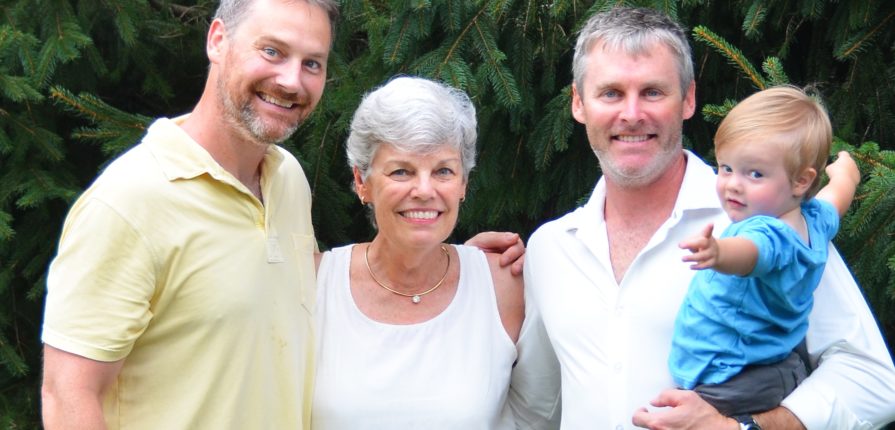My boys are in their late 30s and I am grateful every day that Bill and I have a close relationship with them…very different from the relationship we had with our own parents. We don’t share day-to-day occurrences other than the ubiquitous FB, but we treasure the many times we are together sharing a meal or an experience, laughing or telling stories, and advising only when asked. Bill and I worked deliberately through our own parenting journey to transition to an adult relationship. As our boys grew up and out, we became adult “friends”, different from their adult, “peer” friends but still adult to adult.
My emphasis is growing up and out, and I think it has to do with the general message we gave each of the growing boys that they were capable, independent problem solvers. All parents want to keep their children safe and secure. However parents are a concern for me when they hover and plead, staying so close that their body language shows, “You need me. You can’t do it without me.”
I watched a parent try to exit a store the other day and it seemed as though the parent was trying to be a “friend” to the preschooler rather than a parent. My observation involved a teary child who was having difficulty leaving without a coveted toy. The parent rightly recognized the emotion, but began to negotiate the leave-taking with so much empathy that minutes went by with the parent trying to placate an unhappy child when it was long past time they should have left. (I didn’t stay to see how this ended.)
Was this an example of an adult trying to be a friend or a parent? A friend typically tries to make the friend happy, but a parent role is different.
An alternate approach would have been to acknowledge the child’s feelings, “I see you are upset, but we need to leave.” A child knows when they have a captive audience, so in this case the parent is exercising parental duty. Know that it is okay to have a limit and to say, “No.” Don’t get trapped into negotiating. If you say, “We will leave in two minutes from the playground,” (or from the playdate), you need to be prepared to keep your word.
In researching for this post, I found a June 22, 2016, Science of Us, blog post by Cari Cowan who wrote: “Ideally, a friendship is a reciprocal relationship, each person both leaning on and propping up the other. And a parent-child relationship, ideally, is not that. It’s something much more hierarchical, with more defined ideas about appropriate levels of closeness and distance. It’s a relationship where the best possible outcome is for one party to grow away from the other.”
We love our children deeply and unconditionally…even when they are at their most annoyingly worst. Mom won’t say, “I won’t be your mom anymore,” but friends may say, “I won’t be your friend anymore,” perhaps motivating a change in behavior. Learning to be a friend is hard work for preschoolers, and it isn’t like the unconditional acceptance from a parent. Children are looking for boundaries and it’s a parent’s job to set them.
Maybe it’s just semantics, but parents aren’t friends, at least until your child is an adult.
Best in parenting,

Ginny Hacker
Director, Meridian Hills Co-op



